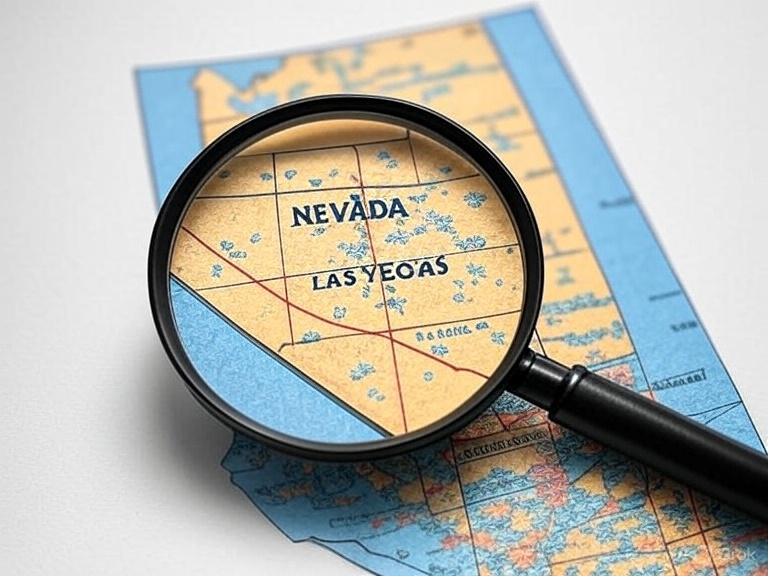What Just Happened?
President Trump just signed what he calls his “big, beautiful bill” into law on July 4th. This sweeping piece of legislation cuts about $1 trillion from health programs like Medicaid over the next decade while extending tax cuts and boosting border security funding. Think of it as Trump’s way of delivering on his campaign promises all at once.
For conservatives who believe in limited government, there’s a lot to like here. The law imposes new work requirements on able-bodied Medicaid recipients aged 19 to 64, requiring them to work, volunteer, or participate in job training for at least 80 hours per month. This gets to the heart of conservative principles about personal responsibility and reducing government dependency.
Why Nevada Gets Hit Harder Than Most
Nevada isn’t just any state when it comes to this law. It’s like being the unlucky person at the poker table who gets dealt a particularly tough hand.
About one in three Nevadans are on Medicaid, thanks to a massive expansion back in 2013. That’s a lot of people who could be affected. As many as 100,000 Nevadans could fall off Medicaid because of the new work requirements and other changes.
But here’s where Nevada’s unique situation really shows. Unlike other states that might shift money around in their budgets to help people, Nevada has no state income tax and needs a two-thirds majority to raise any revenue. It’s like trying to fix a leaky roof when your toolbox is locked.
The Casino and Service Worker Impact
Nevada’s economy runs on casinos and hospitality. Starting in 2026, gamblers will only be able to deduct 90% of their losses on their taxes, instead of all of them up to their winnings. Professional gamblers worry this could hurt the industry.
On the flip side, the law delivers on Trump’s campaign promise of “no tax on tips,” allowing workers to deduct up to $25,000 in tip income from federal taxes. For a state packed with servers, bartenders, and casino workers, this sounds great at first glance.
But economists point out problems. About 37% of tipped workers don’t earn enough to pay federal income tax anyway, so they won’t benefit. Plus, the deduction phases out for higher earners and only runs through 2028.
What Conservatives Should Know
For limited government advocates, this law represents a mixed bag. The work requirements align perfectly with conservative beliefs about personal responsibility. The goal is to reduce “waste, fraud, and abuse” in safety net programs while encouraging people to work.
The tax cuts are classic conservative policy. Middle-income seniors get a new $6,000 deduction (or $12,000 for couples), and the law extends the Trump tax cuts that would have expired this year. Without this bill, most families would face higher taxes.
The legislation also includes $46.5 billion for border wall construction and $45 billion to expand detention capacity for immigrants. That’s exactly what many conservatives wanted to see.
The Opposition’s View
Critics aren’t holding back. The Congressional Budget Office estimates that nearly 12 million more people will be without insurance by 2034. Democrats argue this will overwhelm emergency rooms and hurt rural hospitals.
Nevada Democratic Assembly Speaker Steve Yeager said he’s “going to make sure that every single voter who goes to the ballot box here next year in 2026 knows about this bill and knows about the impact.” They’re planning to make this a major campaign issue.
Medical groups are upset too. They worry about hospital closures and people losing coverage they depend on.
Governor Lombardo Walks a Tightrope
Republican Governor Joe Lombardo, who won his 2022 election by just 1.5 percentage points, finds himself in a tough spot. Recent polls show he’s holding steady with voters. His approval rating sits at 53 percent with only 32 percent disapproving. That’s solid ground for a Republican governor in a purple state.
He’s praised parts of the law, especially the no-tax-on-tips provision. But he also warned Congress about making changes to Medicaid funding and was one of only seven Republican governors who didn’t sign a letter supporting the bill.
The polling shows Lombardo has managed to stay above water despite political pressures. Lombardo represents the challenge many Republican leaders face. They want to support Trump but also protect their own political futures in purple states.
What Happens Next?
The 2026 elections will be crucial, and Nevada will host critical races for both the House and eventually the White House in 2028.
Democrats are already organizing around this issue. Nevada’s Attorney General Aaron Ford, running against Lombardo, is hammering the health care cuts and arguing that hospitality workers are “going to get played” by the tax promises.
The bottom line? This law represents a real test of conservative principles. It asks whether we truly believe in work requirements and limited government, even when they’re politically difficult. Nevada will be ground zero for finding out.
This article was written with the assistance of AI. Please verify information and consult additional sources as needed.



